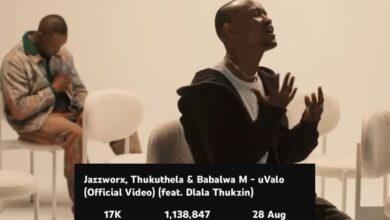Makhadzi Faces Publishing Royalty Dispute After Leaving Open Mic Productions
Makhadzi left Open Mic Productions , She didn’t sign any publishing deal afterwards, only a distribution deal with Africori.
Distribution handles getting the music onto platforms (Spotify, Apple, etc.) and paying her streaming/download revenue. Publishing deals, on the other hand, cover royalties from songwriting, radio play, TV syncs, performances, etc.
Why Makhadzi Left Open Mic Productions
Her previous management (Open Mic) allegedly opened a company called NAZO, in partnership with Mukima Production, working with Virgin Music Group
These companies are allegedly collecting her publishing royalties even though she never authorized or signed any publishing deal with them.
If this is true, it means her intellectual property (songs she wrote/performed) is being exploited without her consent, She could be losing significant income from publishing royalties worldwide.
Africori Deal Explained – Distribution vs Publishing
Many fans celebrated when Makhadzi announced her partnership with Africori, but confusion remains about what the deal actually covers.
What is a distribution deal?
A distribution deal ensures that music is made available on streaming platforms like Spotify, Apple Music, and YouTube. The distributor collects revenue from streams and downloads, then pays the artist.
What is a publishing deal?
A publishing deal covers royalties from songwriting, radio airplay, TV placements, performances, and sync licensing. This is a completely separate income stream from distribution.
Makhadzi only signed a distribution deal, meaning she never authorized anyone to manage her publishing rights.
Allegations Against Open Mic, NAZO, and Mukima Productions
Industry whispers claim that after Makhadzi’s exit, Open Mic Productions allegedly established a company called NAZO in partnership with Mukima Productions, working closely with Virgin Music Group.
According to reports, these entities may be collecting Makhadzi’s publishing royalties globally — without her signing or authorizing any publishing deal. If accurate, this suggests potential royalty theft or fraud, which could have serious legal implications.
What Publishing Royalties Mean for Artists Like Makhadzi
Publishing royalties are often more valuable than streaming revenue. While streaming pays small amounts per play, publishing royalties are collected whenever a song is:
• Played on radio or TV
• Used in movies, adverts, or soundtracks
• Performed live on stage
• Covered or reproduced by other artists
For a hitmaker like Makhadzi, this could represent millions in long-term revenue. Losing control of this income stream can damage an artist’s financial future.
Legal Options Makhadzi Can Take
If the allegations are true, Makhadzi still has tools at her disposal to fight back:
Hire an entertainment lawyer
A specialist in music rights can demand royalty statements, review old contracts, and take legal action.
Demand transparency from collecting societies
Organizations like SAMRO (South African Music Rights Organization) or international bodies can reveal who is currently registered as her publisher.
Send cease-and-desist notices
Her legal team could instruct NAZO, Mukima Productions, and Virgin Music Group to stop unauthorized collection of royalties.
File legal claims
If fraud is proven, she may have grounds for a major lawsuit against the companies involved.
Reclaiming Control Over Her Catalog
To protect her music in the long term, Makhadzi could:
• Start her own publishing company and directly register her works.
• Sign with a reputable publisher like Sony/ATV, Warner Chappell, or Kobalt.
• Continue independently, using an admin publishing deal to retain control while outsourcing collection.
This would ensure she finally receives every cent from her creative work.
Why Royalty Disputes Are Common in the Music Industry
Unfortunately, Makhadzi’s story is not unique. Many African and global artists have faced similar struggles after leaving management or record labels. Without full control of their rights, artists often discover too late that their songs are being monetized by others.
This highlights the importance of legal literacy in the music industry — especially for rising stars.
What’s Next for Makhadzi?
Fans are eagerly awaiting Makhadzi’s next album, but before its release, resolving this dispute is crucial. Taking back control of her publishing rights could unlock global earnings potential and set a precedent for other African artists.
Whatever happens next, one thing is clear: Makhadzi’s fight is not just about her — it’s about the future of artist rights in South Africa and beyond.

 uValo Hits 1 Million Views in Just 11 Days on YouTube
uValo Hits 1 Million Views in Just 11 Days on YouTube DJ Maphorisa in Studio With Tyla, Babalwa M, Nvcho, Zaba, Xduppy, Jnr SA & DeBow
DJ Maphorisa in Studio With Tyla, Babalwa M, Nvcho, Zaba, Xduppy, Jnr SA & DeBow Uncle Waffles’ “Zenzele” Music Video Hits 10 Million Views
Uncle Waffles’ “Zenzele” Music Video Hits 10 Million Views The 6 Best New Amapiano Songs of the Week (August 29, 2025)
The 6 Best New Amapiano Songs of the Week (August 29, 2025)